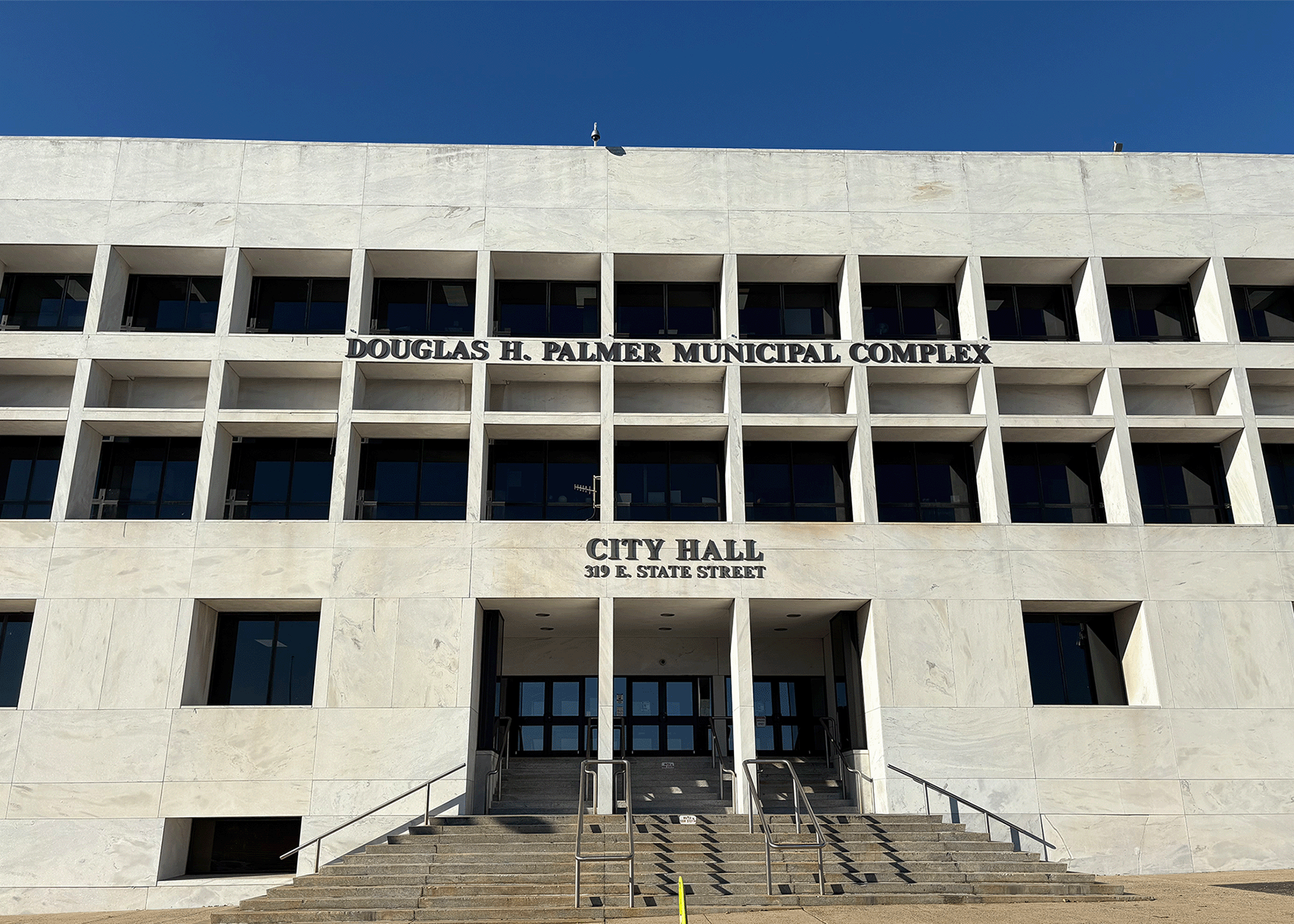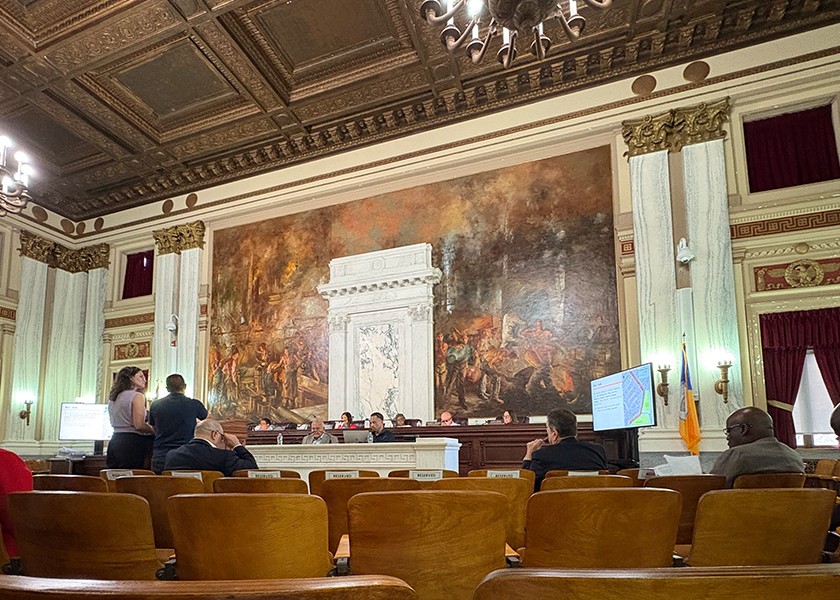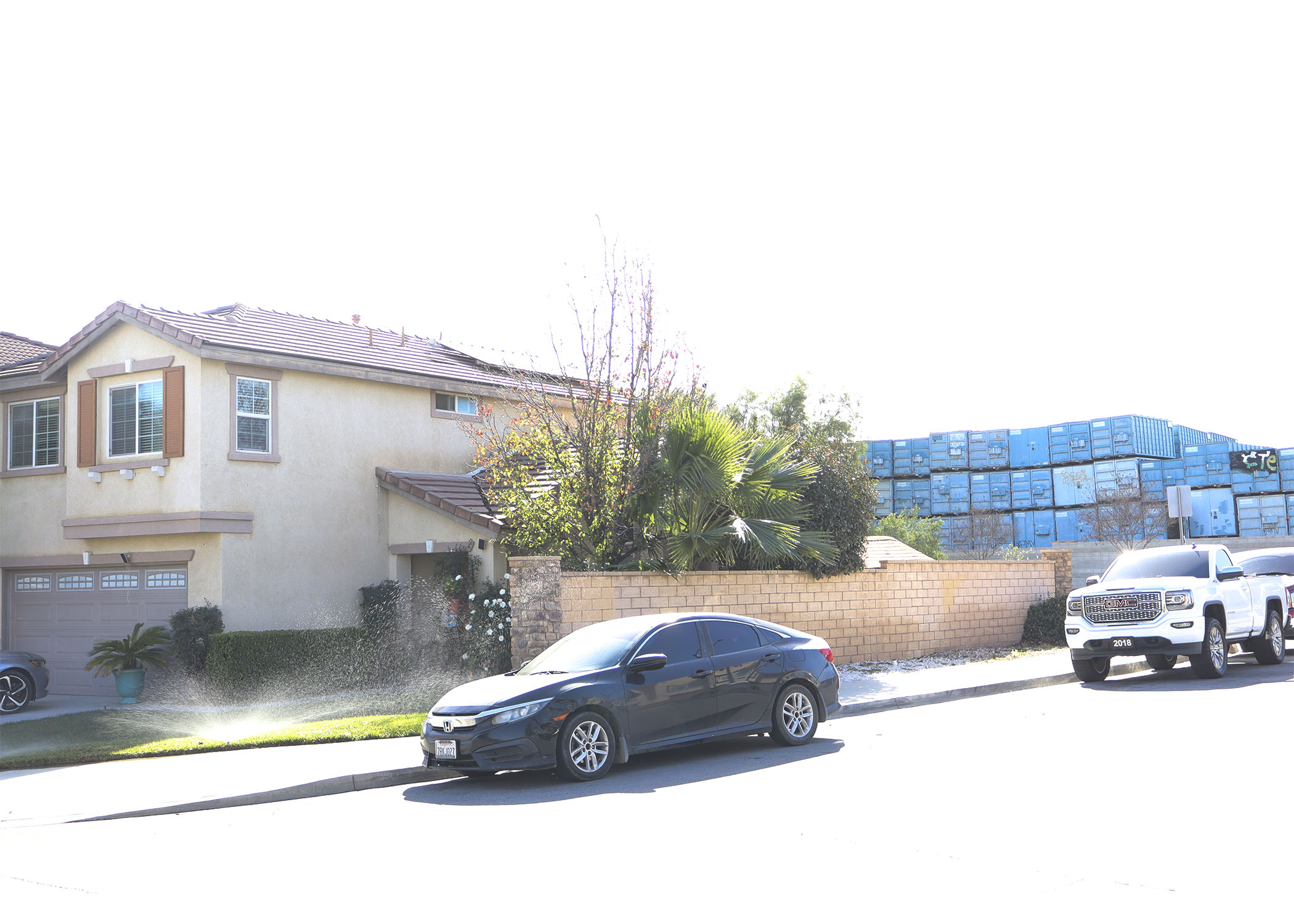(TRENTON, N.J.) — Upon entering the historic Trenton City Hall chambers for the Oct. 7 City Council meeting, the mood was surprisingly convivial. Political members and attendees spoke, laughed, and even hugged each other. For an outsider, it would be almost impossible to differentiate public officials from city residents.
But by 5:30 p.m., the herds had separated. The seven Trenton City Council members emerged from their conversations and rose to their podiums. And by the end of the night, the meeting would be considered even more “eventful” — as Council Vice President Jasi Mikae Edwards put it — than anyone could have expected.
Everything was going smoothly until the topic of water came up.
Trenton Water Works (TWW) feeds the city of Trenton, as well as parts of Ewing, Lawrence, and Hopewell in Mercer County, New Jersey. The system serves approximately 225,000 people and is more than 200 years old.
The council is responsible for establishing resolutions to improve the water system. Residents, especially those on community Facebook groups, often describe the water as cloudy, overly chlorinated, and sometimes brown. Due to the system’s age, and recent catastrophes like the 2023 Legionnaire’s disease outbreak in the water that killed three people, it’s a frequent topic at council meetings.

Trenton City Council meetings take place in City Hall, a historic building built from 1908-1910. [Credit: Lara Becker]
Trenton resident Becky Taylor said that she feels worried that the “system could fail, and it could fail at any time.”
Marc Leckington, who runs a Substack blog entirely dedicated to reporting on issues related to TWW, told The Click that he wants to help the public understand the true severity of the water issues.
“Part of my mission has been: let me find these stories that are buried in this technical jargon. Let me suss them out and make them a little bit easier to understand for the average person,” he told The Click.
To address the water concerns, Edwards discussed her motion to create an ad hoc committee to address Trenton’s water woes. In an interview after the meeting, Edwards told The Click she’s been working to get the committee created since January of this year.
Although the council had not yet approved the ad hoc committee, on Oct. 6 Edwards met with Trenton Mayor Reed Gusciora and Shawn M. LaTourette, commissioner of the New Jersey Department of Environmental Protection (DEP) to discuss water issues.
LaTourette sent a letter in July to the city council and the mayor detailing his concerns about the current state of TWW after the DEP stepped in to monitor the plant’s progress. In the letter, which has been made public, he writes that the Trenton water utility is “on the brink of catastrophic failure.”
But, Edwards did not invite all council members to the Oct. 6 meeting. Only Edwards, the mayor, LaTourette and two of the seven council members were at the meeting. Confused by the discrepancy, Councilman Joseph Harrison, who was not invited to the meeting, asked, “So we’re voting tonight on an ad hoc committee, but yesterday was an ad hoc committee meeting we hadn’t voted on yet?”
Edwards responded that “this was not an ad hoc committee meeting.” She said that “it was for purely educational purposes,” and that “it was never a secret meeting.” She noted that the Oct. 6 meeting was originally intended to take place on Oct. 8, which would have been after voting on the ad hoc committee, but it was moved to the earlier date.
Edwards said she was “taken aback” by the confusion, which continued to be discussed by council members and public commenters throughout the night. In her closing statements, Edwards said of the night’s council, “This was definitely an eventful meeting.”
Based on the audible sighs and groans from audience members when the council members could not agree on how to move forward on the water issues, this was just another hurdle to swim through as Mercer County strives for clean water.
The resolution to create the ad hoc committee was tabled on Oct. 7, but passed at the next council meeting on Oct. 21. Also on Oct. 21, the council failed to pass a resolution to create Trenton Water Works as its own authority, which would have allowed it to operate under its own bonding power, but without having to regionalize the utility. The council also passed a resolution to have experts conduct a new comprehensive assessment of the water system.



